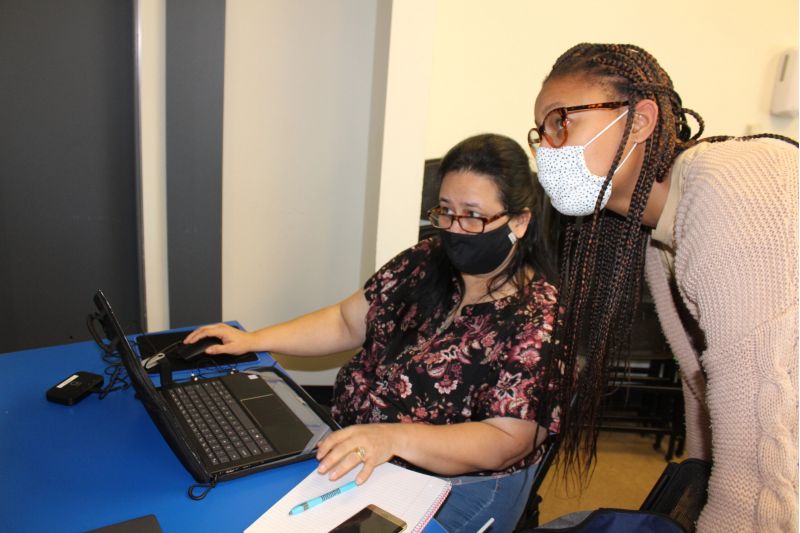Our 2023 Legislative Priorities at United Way of Dallas

The 88th Texas Legislature is in full swing, and lawmakers have introduced more than 4,500 bills on a staggering number of topics. At United Way of Metropolitan Dallas, we keep an eye out for those bills that will have the greatest impact in our focus areas of education, income and health.
To guide our advocacy efforts over the coming months, we’ve homed in on four legislative goals that would have a significant impact on our North Texas neighbors. These are important topics that have the potential to undergo big policy changes this session. As a United Way supporter, we invite you to learn a bit more about each legislative goal and how it would impact our region.
#1: Increase Housing Stability for Low-Income Workers
Millions of Texans are in crisis, struggling to find affordable housing. Workers in Texas’ fast-growing occupations have average wages below 50% area median income (AMI) and are most often affected. When low-income working Texans lose stable housing, many fall into homelessness.
Research shows that it costs far more to rehouse or provide services for someone who is already experiencing homelessness than it does to avoid homelessness by preventing an eviction or providing affordable housing.
What we’re asking lawmakers: Help keep low-income workers in their homes by:
- Allocating $1.5 billion to the Texas Department of Housing & Community Affairs to 1) increase the construction of housing for Texans earning below 50% AMI, which could go toward low-income housing tax credits, and 2) replenish the Texas Rent Relief program, which kept 316,000 Texas families housed during the pandemic.
- Ensuring tenants who have won their eviction case or had their case dismissed are protected from inaccurate eviction screening reports by sealing their record, like House Bill 1450 by Collier proposes.
- Protecting local municipalities’ constitutional authority to enact ordinances giving tenants time to come up with back rent and stay in their homes. These ordinances do not contradict state law.
#2: Scale Child Abuse Prevention Programs
Child abuse costs Texas billions annually in criminal justice, healthcare, social services, education and lost workforce productivity. Preventing abuse upstream not only produces the best outcomes for children, families and communities but also saves the state from other costs. Most allegations confirmed by CPS are neglect and occur between birth to 5 years old—the most important time in a child’s brain development.
Home visiting is a prevention strategy used to support pregnant moms and new families to promote maternal and child health, foster school readiness, and prevent child abuse and neglect.
What we’re asking lawmakers: Fully support Texas Department of Family & Protective Services’ exceptional item #2 to “strengthen services for prevention services by $87.8 million GR/$87.9 million AF and 20 FTEs for the biennium” so more families could be served by these valuable programs.
#3: Increase Access to School-Based Mental Health Services
Over the past two decades, the rate of Texas children who have felt hopeless, struggled with anxiety or depression, or experienced suicidal ideation has been rising. Learning can be challenging for a student experiencing trauma, stress or other difficult life events, and trauma and stress are associated with difficulties with concentration, memory, motivation and decision-making. Alternatively, students who are emotionally and mentally well are more engaged in learning.
What we’re asking lawmakers: Expand access to school-based behavioral and mental health services. This can be done by:
- House Bill 1571 (Lozano) and House Bill 1795 (Howard): Allowing school districts to claim federal Medicaid funding for services provided to Medicaid-enrolled students.
- Senate Bill 948 (West) and House Bill 2451 (Allision): Establishing and funding a School Mental Health Allotment for comprehensive school mental health strategies with flexibility depending on their needs.
#4: Strengthen 211 Texas Information & Referral Network
The 211 information and referral helpline is a federally designated dialing code that provides callers with referrals to local health and social service agencies. In Texas, 211 is a public-private partnership between the state and community-based organizations. 211 Texas is unique in that it is one of the only 211s in the country to be managed, operated and funded by a state government.
Unfortunately, challenges within the 211 Texas system pose obstacles for Texans seeking assistance and put strains on community organizations managing the network. Funding for 211 Texas has remained relatively level for nearly 14 years despite an increase in call volume, operational costs and contract expectations from the Texas Health & Human Services Commission.
What we’re asking lawmakers: Bolster the capacities and functionalities of 211 by:
- Supporting House Bill 2473 (Bucy), which calls for increasing the community-based resource database, improving 211’s technology and utilizing caller data to identify resource gaps.
- Increasing the base budget for 211 by a minimum of $4.6 million per biennium. This would allow call centers to attract and retain quality staff, maintain quality operations, and enhance technology and communication.
Learn More About These Important Topics
Interested in learning more about these priorities and how they impact North Texans? Check out the following resources:
- Understand the impact of an eviction
- Explore the eviction dashboard from North Texas Evictions Project
- Learn about the impact of school-based mental health: “How Medicaid Can Help Schools Sustain Support for Students’ Mental Health”
- Read about how to strengthen 211 in this report from United Ways of Texas
- Learn more about home visiting and other Texas CPS trends
Support Meaningful Change in North Texas
Lasting change only happens when we all work together. At United Way of Metropolitan Dallas, one of the ways we work to improve access to education, income and health is by uniting our voices through advocacy. When we speak up and speak out, together, we show that improving our community isn’t just a goal—it’s a movement.
To stay up to date on our advocacy efforts and legislative priorities, sign up for our Advocacy Alerts.
Tags

Advocate With Us
Sign up for our Advocacy Alerts, and we’ll let you know how and when to speak up on the issues that are impacting North Texas.


